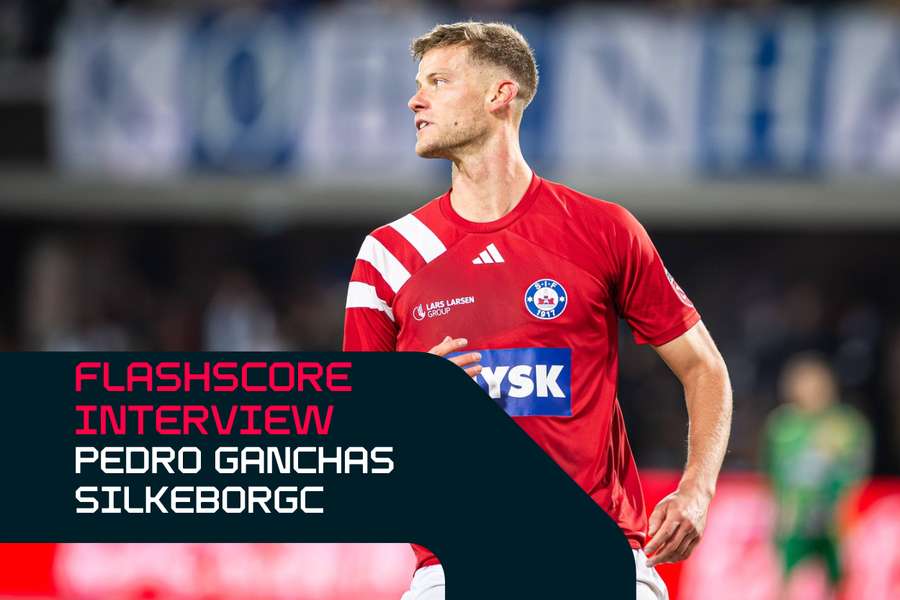Follow Silkeborg on Flashscore
There are times when you look inwards and realise that it's best to take a step back and reorganise your ideas. That's exactly what happened to Pedro Ganchas.
After four years at Benfica, the defender opted to turn down the offer to stay with the eagles and returned to his starting point, 'his' Carregado, where, within two years, he realised that it wasn't the place he wanted for his future.
Now, however, he's in Denmark, playing for Silkeborg, in a league that has surprised him "a lot" in a positive way.
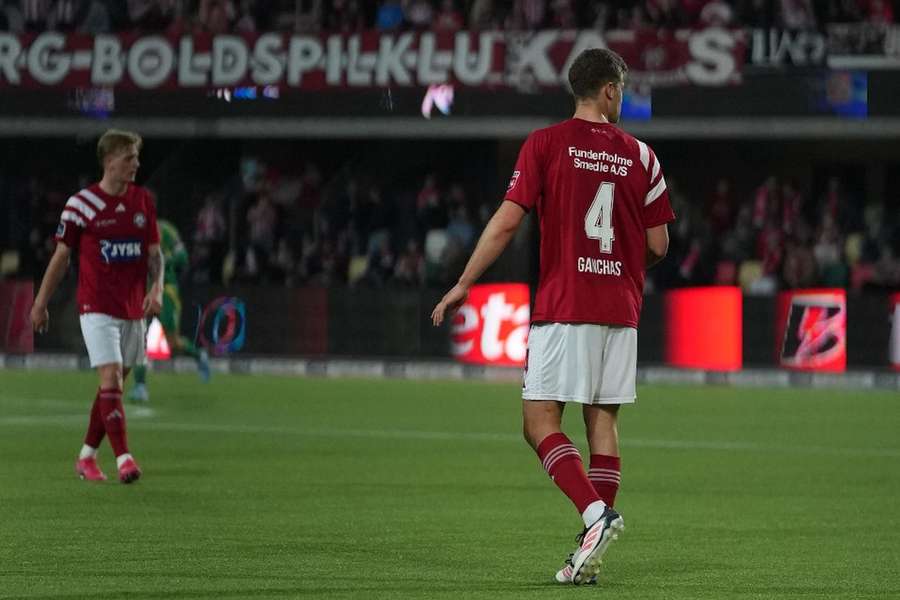
"I was very surprised when I arrived in Denmark"
- How is the experience in Denmark going?
"On a personal level, I'd say things are going pretty well. I had some doubts, when I accepted the offer to come to Denmark, because it's not a league that is followed very closely in Portugal and it's a little on the periphery of European football. So there was a certain lack of knowledge and uncertainty. But I was very surprised when I arrived.
Up until the December break, as a team we were in the top six and in the semi-finals of the Cup. I'd played in every game, so it was looking to be a very interesting season. However, in February, when we resumed the competition, things didn't go the same way and we ended up dropping out of the top six.
Since then, we've been trying to recover and our goal now is to reach 7th place, which gives us access to the playoff for European competition. With about a month to go, my assessment is very positive - it has exceeded my expectations.
- What can you say about the Danish league?
"I think what sets the players apart the most is their athleticism. Culturally, they're a very active people - even in the cold, they have a habit of cycling and running in the forest. This shows on the pitch, reflected in the intensity of the game.
Portugal recently played Denmark and this was evident, especially in the first game. In terms of tactics and work methodology, we (the Portuguese) are perhaps among the best in the world, and here you can see that there isn't as much focus on that detail. The game becomes faster, more broken up, with lots of chances to score and, as a result, there's a lot of emotion around the game."
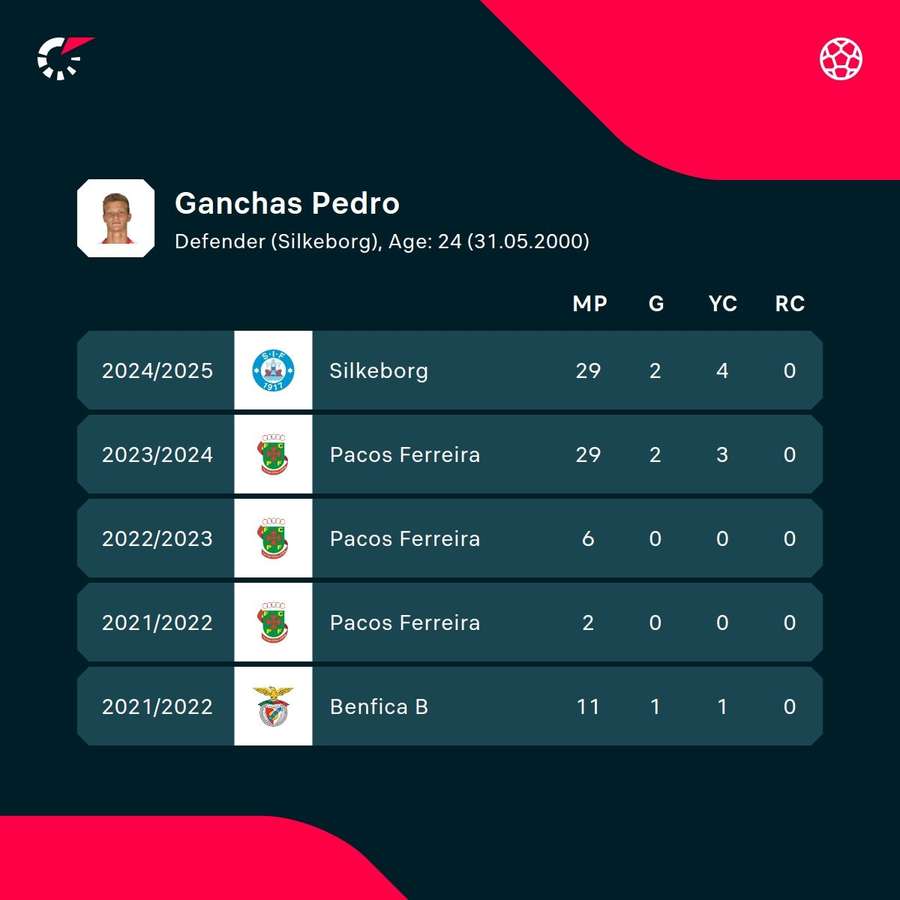
- What impact has it had on your game as a defender?
"It was important for me to develop in that aspect, to be able to be at the level that the games demand."
- The Nordics are often seen as a more reserved people. Do you agree with that?
"They are a more reserved people, yes, perhaps influenced by the climate. For much of the year it's quite cold, and that, for both Danes and Portuguese, takes away a little of the desire to go out on the streets. In the end, the climate pushes them to stay indoors, to be more family-orientated.
But when it comes to relationships with others, they are very open and always willing to help. From the staff to my team-mates, they've been impeccable with me and made it very easy for me to fit in. Outside the context of the club, it's a little more difficult to socialise, but that's natural given the culture."
- Why did you decide to go to Silkeborg and how would you describe the club?
"That was one of the things I analysed: why me, why a Portuguese? Apart from the Swedes next door, there are only two foreigners in the squad. In other words, it's not a club with a culture that's particularly open to signing international players - and that made me wonder why they wanted to invest in a Portuguese player.
Another issue was the synthetic pitch. I hadn't played on synthetic turf since I was 17, and that put me off. But those fears disappeared almost completely when I got here. I didn't have any problems at all.
The club really surprised me with the way it's run. They take everything seriously, they have a well-defined project plan and it's clear that they're following that strategy consistently. They've managed to develop players and make good sales - which, for the reality of this league, is impressive. The financial component, combined with the ability to project players, is very well worked out.
- They sold (Oliver) Sonne to Burnley, who have just gone up to the Premier League. That shows that, even though it's a more peripheral league, people are paying attention to what's going on in Denmark.
"Football is becoming more and more globalised and recognises value where it exists. From what we've seen in recent years, the Danish league has gained more visibility, largely because of the sales it has been able to make. The top five leagues are paying attention and are increasingly looking at the Danish league.
- How are footballers looked on in Denmark?
"People don't look up to footballers in Denmark the way we do in Portugal. In Portugal, players are often idolised, almost like heroes, while here it's not like that. For me, it's difficult to know what the expectations are, both from the fans, the coach and the organisation, but given the way I've been used, I'd say I've lived up to expectations.
- How is your life in Silkeborg?
"I'm a quiet person, I'm not a footballer who gets involved in a lot of adventures and luxuries. Silkeborg is a quiet and very beautiful town. Of course, there is the downside of logistics - the nearest airport is an hour away and you have to make a stopover to fly home. It's a place surrounded by nature. I miss the beach and the food, but I can't say that life is bad here.
- What do you hope this opportunity will give you in terms of the future?
"When I left Portugal it was to gain experience abroad, without having a clear idea of the reality of football outside Portugal. Now that I'm here, in this final stretch of the season, I have personal goals, such as pushing my career to new heights. The examples we're seeing reinforce the hope that bigger things can emerge. Without devaluating where I am, any footballer works with that in mind. I have the goal of continuing to rise to new heights in the future.
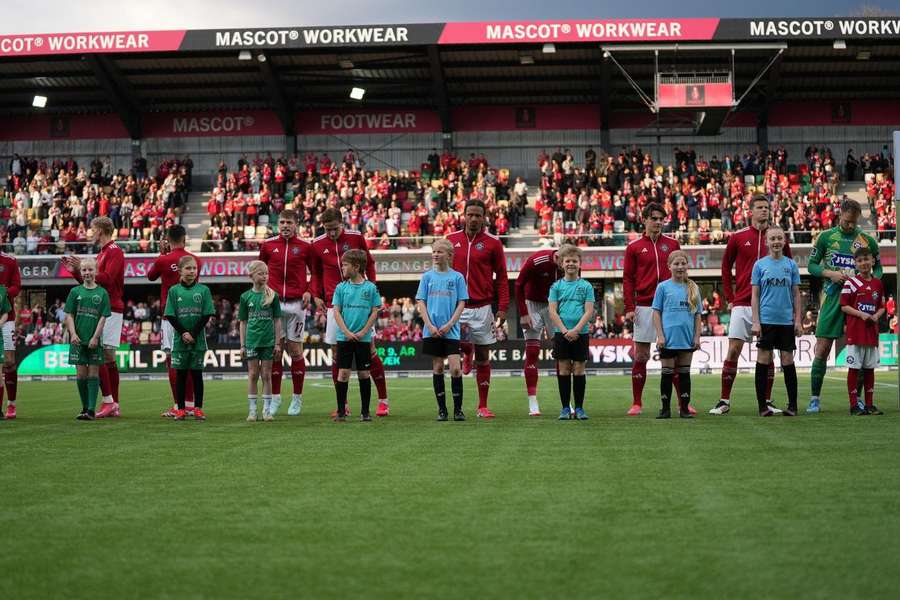
The next Harder or Schjelderup: "There's a kid from Copenhagen..."
- With players like Gyökeres, Hjulmand, Harder, Dahl and Scheljderup, are you surprised by Portuguese football's growing focus on the Nordic market?
"Apart from the physical component, I've been surprised by their technical level. I didn't expect it to be so high. In Portugal, we have a reputation for having very technically developed players, so I'm not surprised that there's an increasingly strong focus on the Nordic leagues. Then, the factor that can be fundamental in determining success in the big leagues is tactical adaptation, but also lifestyle."
- Using your analytical eye, is there another Harder or Hjulmand out there who could be considered for a Portuguese club?
"It's difficult, because, for example, Hjulmand still played for Lecce and Gyökeres played in the Championship. They both left their countries early and had different experiences before arriving at bigger clubs. But in the case of Harder and Scheljderup, the leap was very big. It's difficult to name names, because there are several factors at play, such as age and what they were already able to demonstrate in their respective teams."
"However, I can give you one or two names... There's a kid from Copenhagen, Victor Froholdt, who is excellent and has been called up to the senior squad. There's also a youngster from Aalborg, number 8(Melker Widell) and another who plays for Lyngby and wears number 22(Peter Langhoff). These are kids with a lot of potential, but it's hard to predict their future because it all depends on the plans of the clubs and how they want to help them grow."
- Looking at another very important aspect of football: The fans. Do you experience this phenomenon a lot in Denmark?
- There's a big difference to Portugal. In Portugal, we live very much for the big clubs, it's hard to find a fan who only supports Estoril and not also a big club. That doesn't happen here. There's great competitiveness and people are very supportive of their local club. There's a more humanistic culture, with more respect. (...) The Silkeborg seats 10,000 people, and our average is 7,000 to 8,000 - a very high average. There's a very strong football culture in every stadium. Even in matches against teams at the bottom of the table, there's a great spirit about football.
- The next game is against Brondby in the semi-finals of the Cup. Is it possible to go through to the final and challenge for the trophy?
"I think it's possible. Last year Silkeborg won the Cup, and we have every chance of reaching the final. It's a two-legged play-off, with the second leg at home, so there's a lot to look forward to. Brøndby are a big, growing team, but I think that if we do things right, we can reach the final.
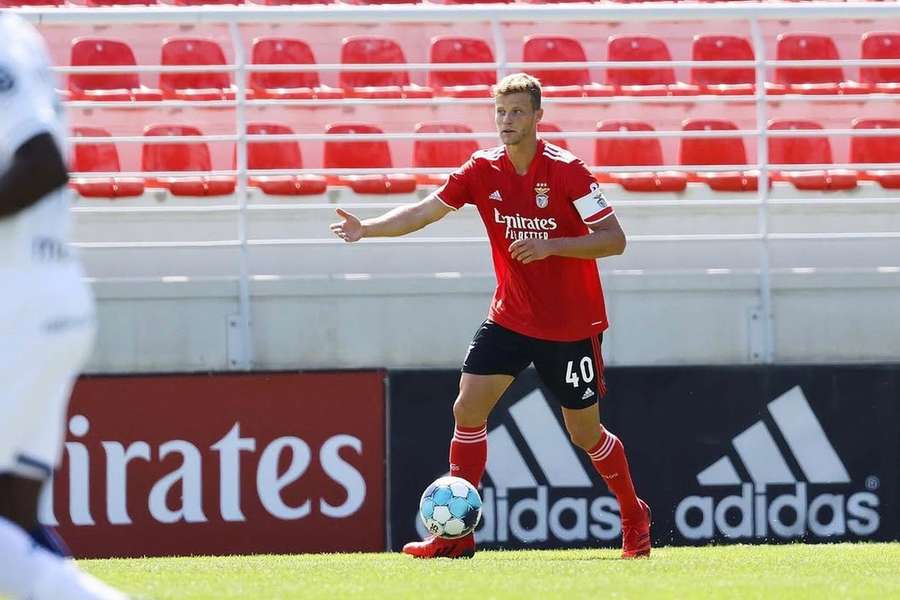
- The decision to leave Benfica shows a lot of maturity. I'd like to know when you realised you could be a professional footballer?
- There are two phases. In the first, when I left, many people didn't understand my decision. I was in a place where many people would like to be, and they were wondering how I was going to give that up. But at that moment, I wasn't comfortable and I don't regret it at all. It was the right decision. Then there was the phase, when I went back to square one and realised that, at the time, it wasn't for me and I wanted to go back to the other level I'd been at. It was a change of mentality to realise what I needed to do to get back to that level. Those were two important years. When I returned to Benfica, I already had a professional contract and I started to look at things in a different way.
Now, I'd say that it was in my second year as an Under-23 that I really started to believe that I could make a living from football. Then I felt that things were going well and that I could make it into the B team. There's always that regret that I didn't make the A team, but at that time there were very few opportunities.
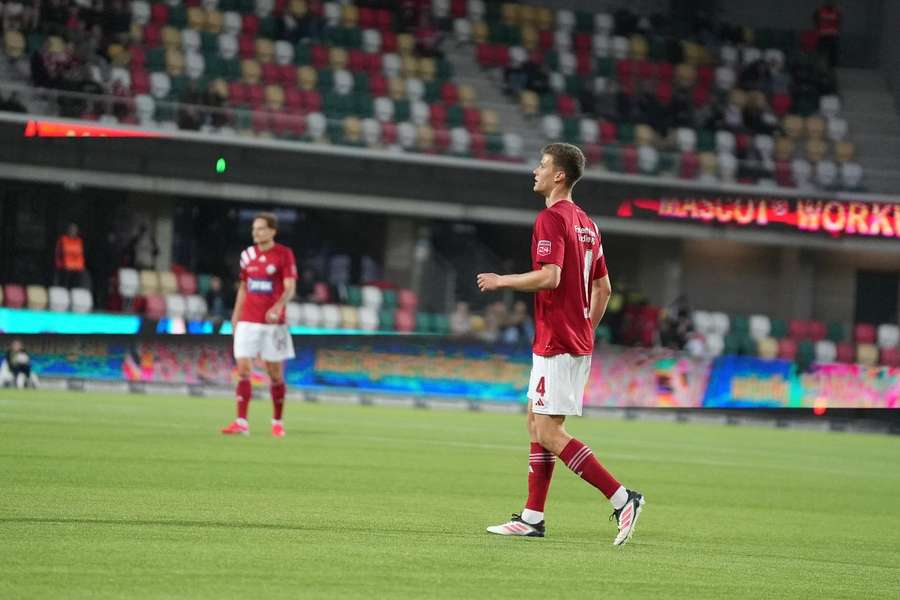
"I don't see myself returning to Portugal in the near future"
- Since you moved to Denmark, has your perception of Portuguese football changed much?
"The perception remains the same, I can't say it's changed. Portugal plays very good quality football. Perhaps we lacked a bit of the intensity I found here. Silkeborg, for example, go to Copenhagen and don't play not to lose, but to win. In Portugal, there are teams that play just for one point, with a solid defensive rearguard, and here that doesn't happen as much, which makes it more attractive for the spectators. I continue to follow and like what I see, although there are always things to improve."
- Do you have plans to return to Portugal?
"Now, I don't see myself returning to Portugal in the near future, unless it's for one of the big teams. I'm not saying it will never happen, but it has to be a sustainable project. I'd like to continue my experience outside Portugal."
- Pedro, what would you like people to say about you the day you decide to end your career?
"Above all, I want them to recognise Pedro as the human being he was in football. It's a very competitive world, with lots of things happening. I think that, at the end of the day, I want to be recognised as a human being who was always professional, who never disrespected anyone, who achieved everything on his own merits and through his ability to work. And if you can tell me that he was a fantastic player technically and had a beautiful career, rising through the ranks thanks to his professionalism, capacity for work and personality, I think I'd sleep easy and with a clear conscience."
